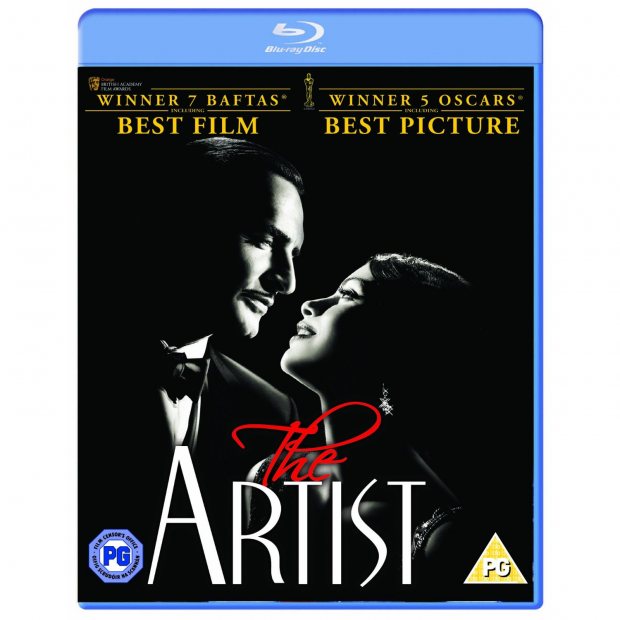 With the release of the multi award winning The Artist on DVD and Blu-ray this week, I (James Harrison) thought we could have a quick look at my favourite DVDs found within the Bristol Silents DVD/Blu-Ray library.
With the release of the multi award winning The Artist on DVD and Blu-ray this week, I (James Harrison) thought we could have a quick look at my favourite DVDs found within the Bristol Silents DVD/Blu-Ray library.
However, I decided on a couple of ground rules. Firstly, the editions would have to be available in the UK (so no American releases this time around) and secondly, I especially didn’t want to include any silent comedy tittles, otherwise it would just be full of Chaplin and Keaton releases.
So here we go…. The Bristol Silents’ Favourite Silent Film DVDs:
Les Vampires (Artificial Eye)
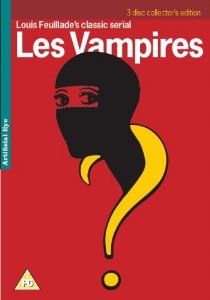 £15 can go a long way when it comes to silent film DVDs. For instance, you can get the entire Les Vampires serial (all 10 Episodes) and a number of extra Louis Feuillade shorts on top for around £15. The picture quality is very good, as is the music by Eric Le Guen. Enough said really, I think you’ll agree - worth every penny!
£15 can go a long way when it comes to silent film DVDs. For instance, you can get the entire Les Vampires serial (all 10 Episodes) and a number of extra Louis Feuillade shorts on top for around £15. The picture quality is very good, as is the music by Eric Le Guen. Enough said really, I think you’ll agree - worth every penny!
‘A legendary early masterpiece of French cinema, ‘Les Vampires’ follows the exploits of a nefarious band of master criminals led by the seductive femme fatale Irma Vep, alluringly played by Musidora. Holding Paris in the grip of terror, the underworld gang are pursued across the city by heroic journalist Philippe Guerande and his sidekick Mazamette. Reflecting the mood of fear and anxiety in World War I era France, this meticulously restored ten-part silent serial from film pioneer Louis Feuillade creator the acclaimed Fantômas serials is a hugely influential and engrossing crime drama from cinema’s golden age.’
Metropolis Dual Format Edition (Masters of Cinema)
Probably one of the most popular silent films of the age and probably one of the most anticipated DVD releases (silent films wise anyway) in the past few years. The brand new footage really brings extra meaning to the plot & the overall atmosphere of the film itself. And who can’t forget the extra footage of Fritz Rasp’s The Thin Man? Like many of the other Masters of Cinema recent silent film releases, the set comes with a fantastic selection of extras. This is a no brainer to be honest! You need this in your collection; either that or the Moroder version (now available via Kino) anyway.
‘With its dizzying depiction of a futuristic cityscape and alluring female robot, Metropolis is among the most famous of all German films and the mother of sci-fi cinema (an influence on Blade Runner and Star Wars, among countless other films). Directed by the legendary Fritz Lang (M, Das Testament des Dr. Mabuse,The Big Heat, etc.), its jaw-dropping production values, iconic imagery, and modernist grandeur it was described by Luis Buñuel as ‘a captivating symphony of movement’ remain as powerful as ever.
Drawing on and defining classic sci-fi themes, Metropolis depicts a dystopian future in which society is thoroughly divided in two: while anonymous workers conduct their endless drudgery below ground their rulers enjoy a decadent life of leisure and luxury. When Freder (Gustav Fröhlich) ventures into the depths in search of the beautiful Maria (Brigitte Helm in her debut role), plans of rebellion are revealed and a Maria-replica robot is programmed by mad inventor Rotwang (Rudolf Klein-Rogge) and master of Metropolis Joh Fredersen (Alfred Abel) to incite the workers into a self-destructive riot.
A’Holy Grail’ among film finds, Metropolis is presented here in a newly reconstructed and restored version, as lavish and spectacular as ever thanks to the painstaking archival work of the Friedrich-Wilhelm-Murnau-Stiftung and the discovery of 25 minutes of footage previously thought lost to the world. Lang’s enduring epic can finally be seen for the first time in 83 years as the director originally intended, and as seen by German cinema-goers in 1927.’
R. W. Paul: The Collected Films: 1895-1908 (BFI)
Not a month goes by without me playing this DVD. It really sums up everything which I love about silent film. When watching any of Paul’s films found on the DVD you really get the essence of a film industry and a medium which is only a few years old. Historically, it also drives home the point that the Britain (and the British Empire which is depicted in these films) is long gone. The picture quality is wonderful as well as the accompanying music played by Stephen Horne. Worth noting that the audio commentary by Ian Christie is great as well.
‘Robert W Paul is justly celebrated as the leading pioneer of British film and one of the founders of world cinema. Concentrating first on actuality films, he soon branched out, pioneering almost every kind of film from documentary to fiction and fantasy. This unique DVD collection of 62 films, many preserved by the BFI National Archive, represents an attempt to bring together for the first time the collected output of R W Paul and his studio.
Paul produced what is arguably the first British narrative film A Soldier’s Courtship (1896, now lost), and in 1898 became the first man to edit two scenes together in Come Along, Do!. With the help of former magician Walter Booth, he created elaborate fantasies in the mould of George Mlis such as The ‘?’ Motorist (1906), in which an animated motorcar drives off into space and round the rings of Saturn.
Addition to popular comedies, dramas, and elaborate trick films, this collection contains one of only two surviving films of the disaster caused by the launch of HMS Albion; some of the first films shot in Spain, Portugal, Egypt and Sweden, including frontline reporting from the Anglo-Boer War; Paul’s famous record of the 1896 Derby and extensive coverage of Queen Victoria’s Diamond Jubilee procession. These, and the numerous actuality films that Paul made, show day-to-day life in Victorian London.
These rare films are presented with a brand new musical accompaniment by celebrated pianist Stephen Horne.’
Cottage on Dartmoor (BFI)
I love watching Cottage on Dartmoor, not only because of the film, but also for Stephen Horne’s fantastic score. I also love the incredible cinematography & always find the great storyline which plays out in front of us thrilling. Highly recommended!
‘One of the very last silent films to be made in Britain before the talkies revolutionised cinema, A Cottage on Dartmoor (1929) is a virtuoso piece of filmmaking, a final passionate cry in defence of an art form soon to be obsolete. Restored from film materials preserved in the BFI National Archive, this little-known gem is released on DVD for the first time in the UK and presented here with a specially commissioned score by Stephen Horne.
Directed by Anthony Asquith (better known for The Browning Version and The Way to the Stars) A Cottage on Dartmoor is an embroiled melodrama, a tale of love and revenge, set on the bleak landscape of Dartmoor.
In a small-town hairdressing salon, a young barber, Joe (Uno Henning) is trying to court Sally, the beautiful manicurist (Nora Baring) and asks her out. She rejects him in favour of the security offered by an older, wealthier farmer. In a jealous rage Joe slashes the farmer with a razor and is sent to Dartmoor prison for attempted murder. He escapes over the moors to find Sally, who does not know if he has come to kill her or ask her forgiveness, and it’s at this point that the film begins. The rest of the story is told in flashback.
Overlooked by critics more eager to heap praise upon his contemporary, Hitchcock, (who made Blackmail during the same year), Asquith’s films display the same skill in inventive story-telling and technical artistry. Steeped in the work of the Soviet avant-garde and German expressionism, Asquith adopts these styles whilst instilling the film with a particularly British sensibility.’
Nosferatu (Masters of Cinema)
There are quite a few DVD editions of Nosferatu available out there, some rather good, others incredibly bad! However, this edition which was released by Euerka/Masters of Cinema in 2007 is one of the best you’ll be able to find. There are a number of reasons why I have chosen this edition more than any others. For one reason, the picture and sound quality are superb throughout. The extras found within this edition are worth the price on their own, especially the documentary, which includes a section which shows what some of the infamous film locations look like today. Worth checking out the BFI’s release of Nosferatu from 2002 as well; a Kevin Brownlow Photoplay print with an impressive score by Hammer’s composer James Bernard.
‘An iconic film of the German expressionist cinema, and one of the most famous of all silent movies, F. W. Murnau’s Nosferatu: A Symphony of Horror continues to haunt — and, indeed, terrify — modern audiences with the unshakable power of its images. By teasing a host of occult atmospherics out of dilapidated set-pieces and innocuous real-world locations alike, Murnau captured on celluloid the deeply-rooted elements of a waking nightmare, and launched the signature “Murnau-style” that would change cinema history forever.
In this first-ever screen adaptation of Bram Stoker’s Dracula, a simple real-estate transaction leads an intrepid businessman deep into the superstitious heart of Transylvania. There he encounters the otherworldly Count Orlok — portrayed by the legendary Max Schreck, in a performance the very backstory of which has spawned its own mythology — who soon after embarks upon a cross-continental voyage to take up residence in a distant new land… and establish his ambiguous dominion. As to whether the count’s campaign against the plague-wracked populace erupts from satanic decree, erotic compulsion, or the simple impulse of survival — that remains, perhaps, the greatest mystery of all in this film that’s like a blackout…
Remade by Werner Herzog in 1979 (and inspiring films as diverse as Abel Ferrara’s King of New York and The Addiction, and E. Elias Merhige’s Shadow of the Vampire), F. W. Murnau’s surreal 1922 cine-fable remains the original and landmark entry in the entire global tradition of “the horror film”. The Masters of Cinema Series is proud to present, at long last, Nosferatu: A Symphony of Horror in its definitive restoration, complete with original intertitles and accompanied by the score that played with the film at the time of its initial release.’
All words James Harrison.
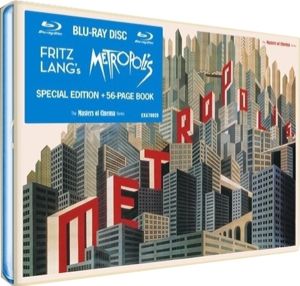
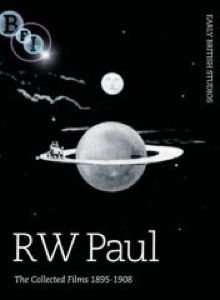
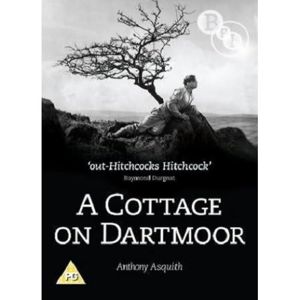
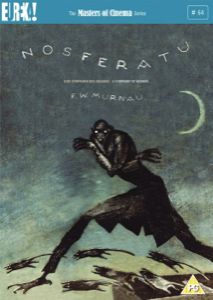
#1 by Mark Fuller on May 29, 2012 - 8:20 am
Hard to disagreee, James. As a devotee of British silent film, good to see A Cottage on Dartmoor in there, and totally agree with your comments……I long to see the other Asquith silent masterpieces released; Underground and Shooting Stars (in association with AV Bramble) are every bit as fresh and groundbreaking stylistically, and just as entertaining. For that matter, dare we hope for a release of the Hitchcock 9 ??? And I know I won’t be the only one here wishing they could put out shiny discs containing the early 1920′s Manning Haynes/Lydia Hayward adaptations of WW Jacobs short stories …..
#2 by James Harrison on May 29, 2012 - 1:20 pm
Totally agree about Underground… although the Hitchcock 9 are avaliable on the two different boxsets, but not in the greatest of quality we would expect for the BFI I guess.
#3 by James Harrison on May 30, 2012 - 11:28 pm
Talking about Hitchcock… Can’t be sure about release to be honest; seeing that their release in their boxset was rather; well, rubbish
The Lodger on Blu Ray:
http://www.blu-ray.com/news/?id=8813